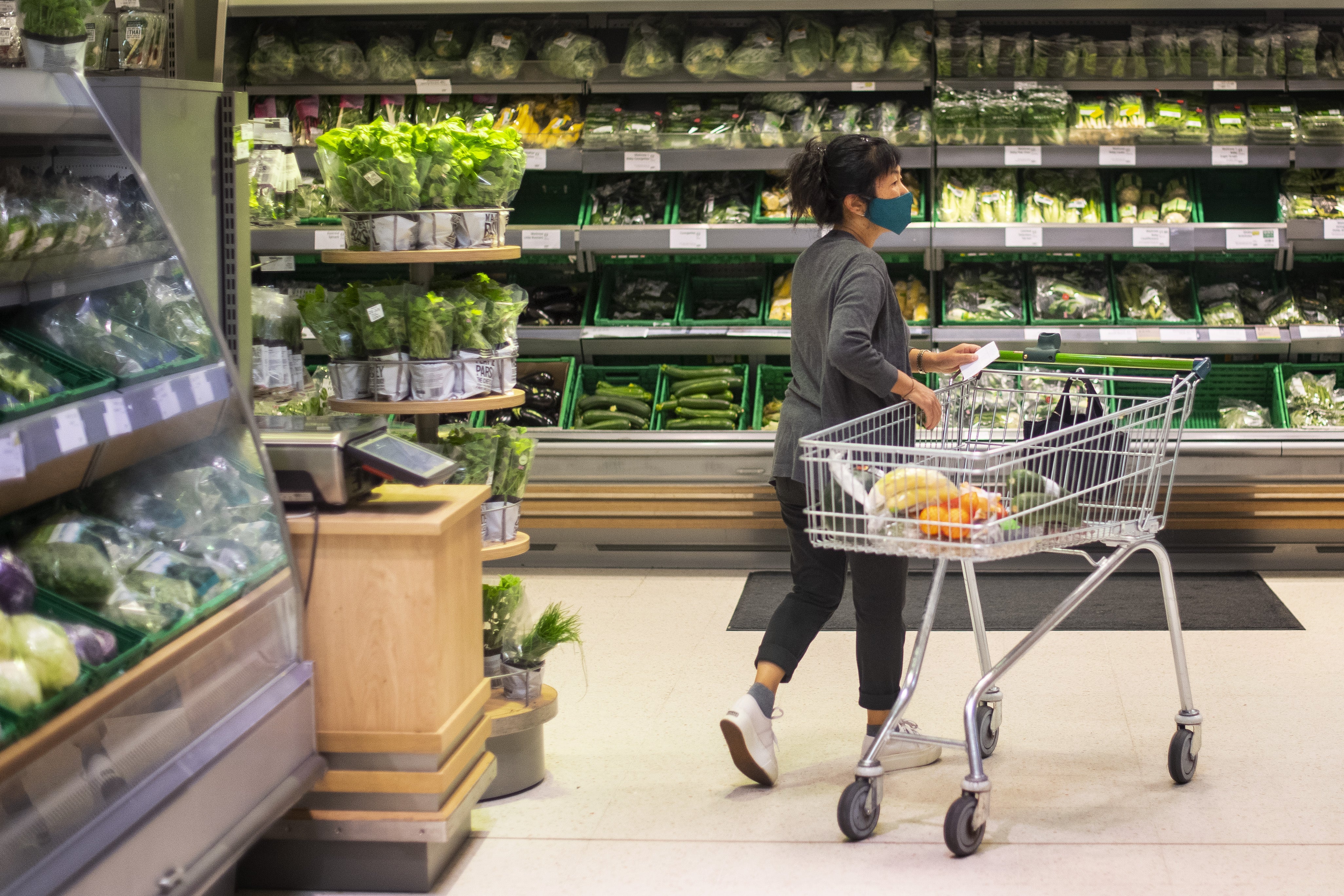Inflation rises to 3.2% as food costs soar
Month-on-month rise is largest since records began in 1997

Your support helps us to tell the story
From reproductive rights to climate change to Big Tech, The Independent is on the ground when the story is developing. Whether it's investigating the financials of Elon Musk's pro-Trump PAC or producing our latest documentary, 'The A Word', which shines a light on the American women fighting for reproductive rights, we know how important it is to parse out the facts from the messaging.
At such a critical moment in US history, we need reporters on the ground. Your donation allows us to keep sending journalists to speak to both sides of the story.
The Independent is trusted by Americans across the entire political spectrum. And unlike many other quality news outlets, we choose not to lock Americans out of our reporting and analysis with paywalls. We believe quality journalism should be available to everyone, paid for by those who can afford it.
Your support makes all the difference.Inflation reached 3.2 per cent in August following the greatest month-on-month rise since records began in 1997.
The consumer prices index (CPI) rose by 1.2 percentage points from July to August owing to higher food costs, the Office for National Statistics (ONS) said. CPI monitors changes in the value of a basket of goods containing items regularly bought by typical British households.
The current rate exceeds the Bank of England’s 2 per cent inflation target and is the highest since 2012.
The ONS has advised caution when assessing the August price increases, however, which it described as “temporary”.
The cost of living increased at a slower pace in July, partly because of lower clothing and footwear prices, statisticians said.
Additionally, last year’s Eat Out to Help Out scheme made dining out considerably cheaper compared with August this year. The scheme offered diners a huge government-supported discount on meals up to £10 each.
Earlier this month, wholesale firms warned of food price increases because of a lack of staff, including HGV drivers, fruit and vegetable pickers and meat processors. The price of tomatoes, for example, rose considerably, with 1kg costing £1.47 wholesale, up from 75p last year.
Darren Labbett, the managing director of Woods Foodservice, a wholesaler that supplies the pub and restaurant trade, told BBC Radio 4 that wholesalers and other parts of the supply chain could not absorb rising costs.
“Vegetable oil is at its highest price now for over 30 years,” Mr Labbett said.
Mark Jones, a partner at retail specialist law firm Gordons, said: “Food prices will rise, it is inevitable. Shipping costs have quadrupled, HGV drivers are nowhere to be found, and with 36 per cent of EU workers leaving the UK post-Brexit, there just isn’t enough labour to harvest the fruit and vegetables and keep prices low.”
The government faced backlash online following the announcement of the inflation figures. Labour MP Jon Trickett claimed August’s rise would negate the Conservatives’ planned NHS pay boost.
The increase means Bank of England governor Andrew Bailey will be forced to write to the chancellor to explain why prices have risen so quickly and what the central bank will do to bring inflation back within the target.
Samuel Tombs, the chief UK economist at Pantheon Macroeconomics, attributed the rise partly to a 4.9 per cent increase in used car prices, which he said “pushed up that component’s inflation rate to an eye-catching 18.3 per cent”.
He added, however, that there was “little near-term momentum in the rest of the core [inflation] basket”.
A Treasury spokesperson said: “The Bank of England are responsible for controlling inflation and expect the rise above their 2 per cent target to be temporary.
“The government is supporting living standards – we have frozen fuel duty for the past 11 years, have capped energy prices, increased local housing allowance last year by just over £600 on average for 1.5 million renters on universal credit and housing benefit, and are committed to continuing to raise the national living wage so that it reaches two-thirds of median earnings.
“Inflation is one of a number of risks to the public finances that we closely monitor, and that’s why the government is taking action to ensure the public finances return to a sustainable footing.”
Join our commenting forum
Join thought-provoking conversations, follow other Independent readers and see their replies
Comments